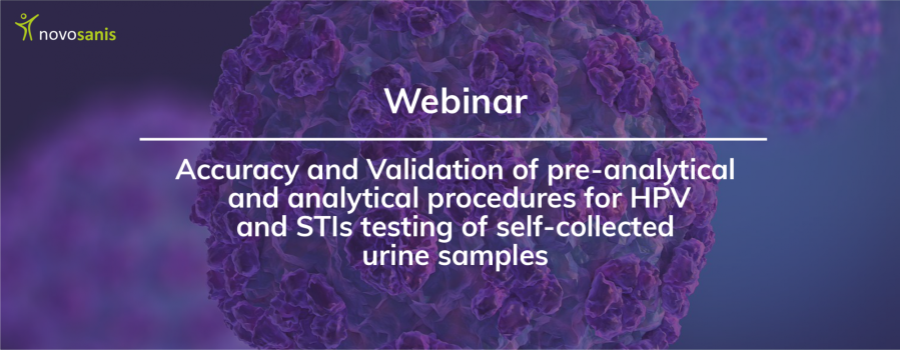Accuracy and validation of pre-analytical and analytical procedures for HPV and STIs testing of self-collected urine samples
You are here

Human Papillomavirus (HPV) and Chlamydia trachomatis (CT) are the most common sexually transmitted infections (STIs) worldwide. While most CT infections are asymptomatic, if persistent infections are left untreated they can lead to severe reproductive tract sequelae such as infertility. Although most HPV infections are cleared spontaneously, persistent infection with one of the carcinogenic hrHPV types can cause cervical dysplasia and invasive cervical cancer.
Current methods to detect STIs are underutilized and only detect a proportion of cases. Self-sampling through non or minimally invasive techniques are gaining interest. Urine, in particular first-void urine (first 20ml of urine flow) has shown great promise in STI detection.
Professor Clementina Cocuzza and Professor Alex Vorsters discuss the following topics:
- Data confirming that improved collection of a first-void urine sample as well as its immediate preservation have a major impact on HPV DNA detection.
- Results of cervical, urine and vaginal samples tested in parallel with Anyplex II HPV28 and Anyplex II 7 STIs collected from 245 women attending a colposcopy unit.
- A comparison of approximately 50 first-void urine samples collected with Colli-Pee® 20 mL vs Colli-Pee® 10 mL respectively, and subsequently analyzed in comparison with cervical samples using NIMBUS-Seegene (200 microliters starting volume) with Anyplex II HPV28 only.
